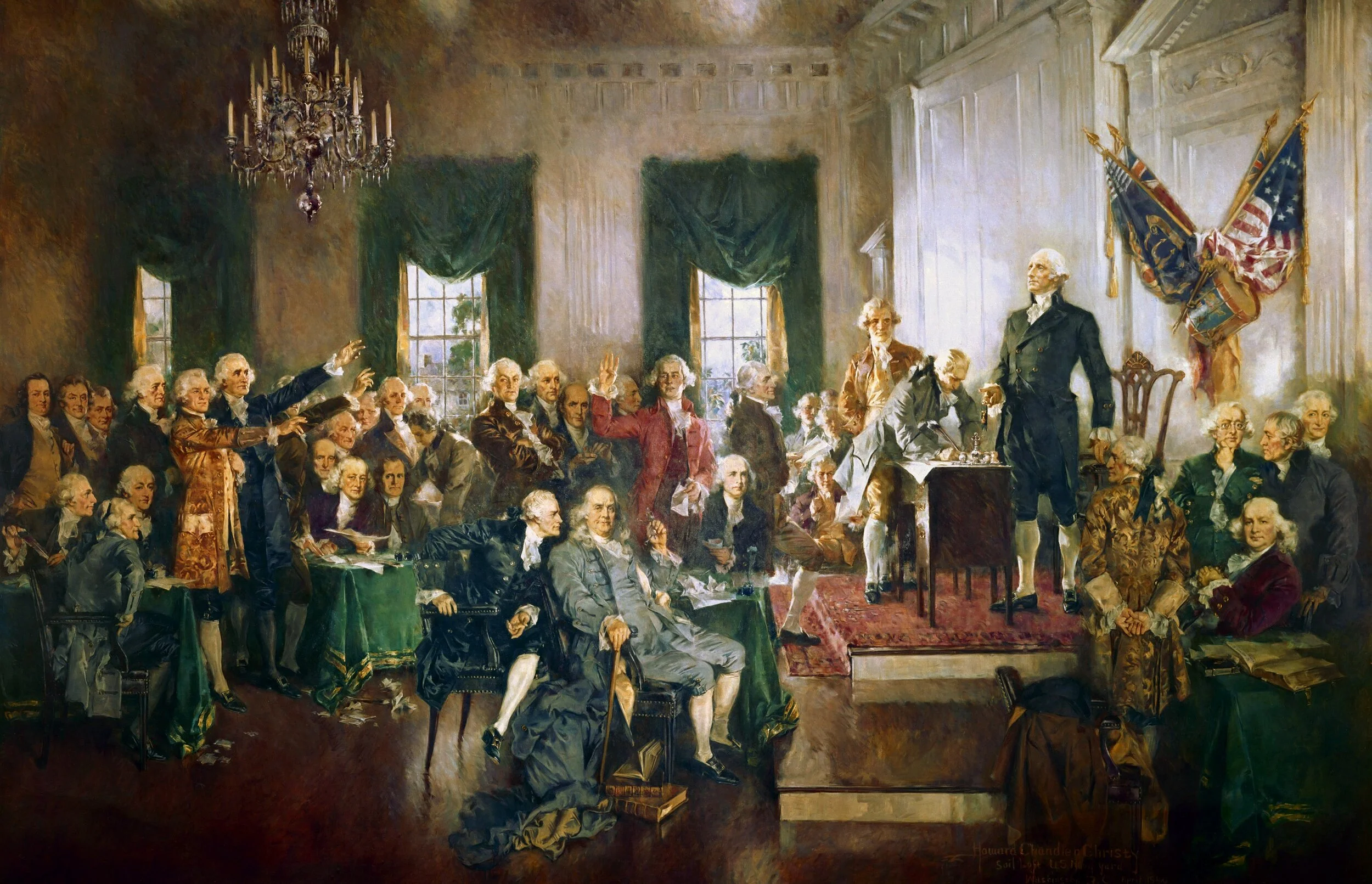The right idea
/People who come across this site may find statements here that puzzle them, or irritate them. A Citizen’s Syllabus doesn’t present the usual points of view about history, the Constitution, or what’s important. And for most people, unusual is wrong and scary.
So, here is a very simple statement of what the Congenial Iconoclast stands for.
This site is for America and the people of America. More specifically, citizens ought to have what the preamble to the Constitution promises, which is “a more perfect Union . . . Justice . . . domestic Tranquility . . . the common defense . . . general Welfare . . . and the Blessings of Liberty to ourselves and our Posterity.”
These basic entitlements of citizenship ought to be for everybody. It’s not enough that some citizens have the blessing of liberty. All should. And its not enough if all citizens have one but not all. It’s not OK, for example, if individual liberty destroys domestic tranquility, or vice versa. We don’t want the Wild West, and we don’t want Nineteen Eighty-Four. It’s not OK if the general welfare is diminished unnecessarily for the sake of the common defense, nor if the nation’s real defense concerns are neglected. And its not OK if the liberty and welfare of our posterity is squandered for the comfort and convenience of the current generation.
None of that should be objectionable. Every American should agree with that.
But most people are quick to choose a side, and the Congenial Iconoclast is not. This site is not left or right, red or blue. Any solution that gives one group what it wants and alienates the other side is no victory. Because liberty ought to be a blessing for all. As GK Chesterton, the early 20th century genius explained, the fundamental problem is that people don’t agree on what the fundamental problem is:
The whole difficulty in our public problems is that some men are aiming at cures which other men would regard as worse maladies; are offering ultimate conditions as states of health that other men would uncompromisingly call states of disease.
Solutions to America’s problems would be easier if most citizens agreed on what the problems are — which they won’t begin to do until there’s a greater consensus about what is good.
A Citizen’s Syllabus contends that the US Constitution, as written and implemented, is not achieving those proper goals. Despite 27 amendments, it has not kept pace with the progress of the nation and the changes of history. It no longer suits the purpose. It no longer delivers on its promises.
America’s commitment to the old Constitution denies living citizens the self government that the Constitution was meant to establish. Every time someone says, “We can’t do that. That’s unconstitutional,” they’re admitting Americans do not have free political will. When a foreign nation is ruled by a tyrant rather than popular choice, Americans urge the people to rebel and seize their freedom. But Americans sacrifice their own sovereignty to an antique document.
The founders would agree. Thomas Jefferson asserted that legitimate power belongs to the current generation and what he called the usufruct of the living.” Many of the founders would be dubious about the inclusion of women and minorities as citizens, but none of them would insist that the constitution of 1787 ought to rule Americans in the 21st Century.
And there are plenty of modern legal and constitution experts who agree. Here’s the prescription of Harvard University political scientist Pippa Norris, talking to a reporter from Vox in October 2020:
We need reforms — lots of reforms. . . . It will sound nuts, but I really think we need a bipartisan commission to start a conversation among moderate Republicans and Democrats and progressives about the larger problems of American democracy beyond voter suppression and beyond gerrymandering and beyond corruption in politics. . . . Again, I know this sounds silly, but when the problems run this deep, all of civic society has to be engaged in this enormous rebuilding effort. We all have to ask, “What are the key issues in America?” and frame them in ways that cut through the conventional Republican-Democrat frame.
To say that the founders would agree does not mean the founders are the allies of the modern citizen. Those guys set up a system for a very different society. When they said “All men are created equal” they meant only land-owning white men. American citizens in the 21st Century, if they agree that women should be equal citizens, have to part ways with the founders. They have to be better than the founders where minority rights are concerned.
But asserting our own carefully considered values, ruling ourselves by our own best principles, is the best way to respect the founders’ aims for the country. Hiding behind the paralysis of unworkable processes and an undemocratic founding document is not.








